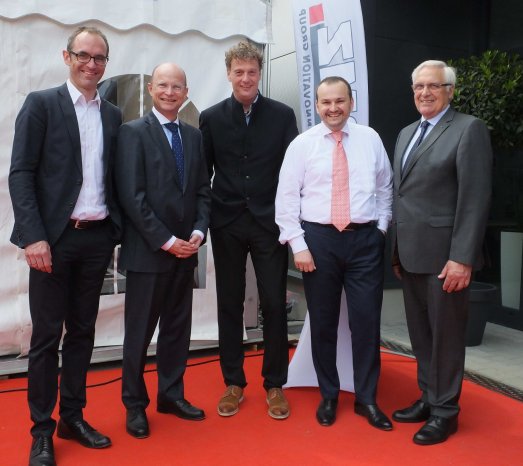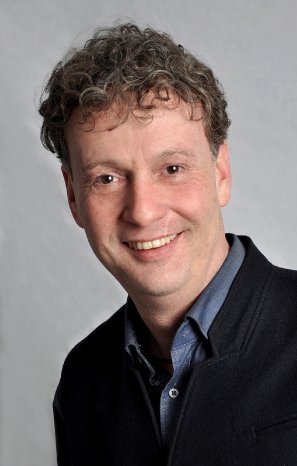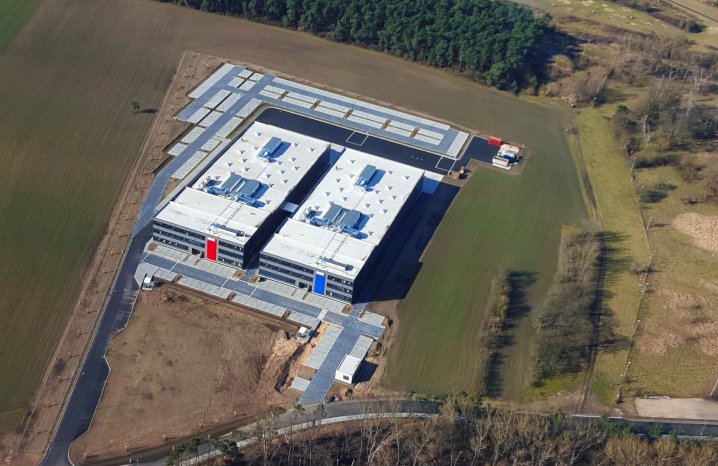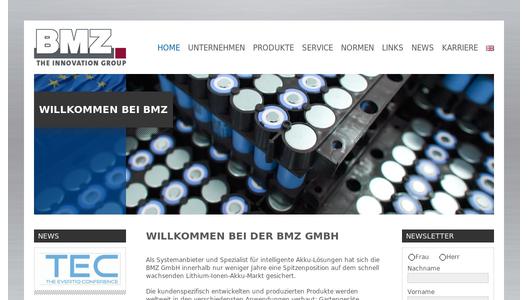For years BMZ has been investing enormous double-digit sums amounting to millions of euro in the rapid development and enlargement of its international production capacities. At the moment the company disposes of around 120,000 m² production sites in its own companies in Germany, China, the USA and Poland. As company founder and owner Sven Bauer explained during the official opening celebration for the two new buildings to numerous guests from the world of politics and business, as well as administration, the large-scale project in Karlstein-Großwelzheim now marks one further important milestone in the company's 20-year-long history considering the total investment volume of about 80 million euros. "The current discussions on subsidies for electric cars often forget that lithium-ion batteries are also used in e-bikes, electrical appliances, gardening tools, energy storage systems, transport vehicles, excavators and so on. Unlike electric cars we are presently undergoing a real demand boom in many of these sectors, and we assume that the demand in these segments will further increase by 15 to 30 per cent annually in the coming years depending on application range. The modular concept of our new ultra-modern factory units enables BMZ to respond even faster and more flexible to this growth scenario as well as specified customer requests in the future," Bauer is pleased.
The setup of Europe's biggest lithium-ion battery factory in Karlstein shows - according to Bauer - how important this technology has become especially for the industry location Germany. The battery expert assumes that already in 2020 wireless solutions will dominate the markets; a development that will challenge hundreds of German medium-sized manufacturers of appliances, machines, equipment and cars on the one hand, but offers enormous growth opportunities in many cases. The request for maximum mobility stimulates not only the demand for well-known appliances such as vacuum cleaners or drill hammers. With modern lithium-ion batteries numerous new ideas can be realized of which robotic lawn mowers are only one of many examples. The market potential for battery-powered appliances is enormous. "From our point of view it is most important to commonly build up our own production of lithium-ion cells in Germany, too. That is the only way to reduce the dependency risks on the few, mainly Asiatic cell producers in the long run," demands Bauer. As first intermediate step BMZ intends to launch their own extremely efficient cell, which is to be applied in their own as well as customer-related battery systems. The cell, which will be presumably available at the end of this year as prototype excels by a 100 % higher durability, 68 % more performance, 88 % more energy, 400 % more charging current and up to 60 % more capacity compared with usual cells according to the industrial standard 18650.
With the opening ceremony of the first section of Europe's biggest battery factory and the development of their own especially efficient lithium-ion cell BMZ once more underlines the market position as biggest independent European developer and producer of intelligent lithium-ion batteries. No other European company has had such a major influence on the development of the lithium-ion battery market in the last two decades as BMZ GmbH. Already at the end of the 90s, when many former competitors were still focussing fully on lead and nickel cadmium batteries, the company's founder Sven Bauer had already recognised the gigantic potential of lithium-ion cells as an energy storage medium. Since then, over 6,000 different customer-specific lithium-ion batteries with intelligent system controls have been developed for around 2,200 customers from all over the world in the company's own laboratories in Karlstein, and the company's head start in system and manufacturing expertise has been consistently and constantly extended. 20 million euros flowed into research and development last year alone.
The company's success is also reflected in their current figures. In 2015, the high-tech company, which was founded in 1994, achieved a turnover of some 350 million euros as the largest independent European lithium-ion battery system developer and manufacturer with more than 1,200 employees worldwide. The 500 million threshold is expected to be broken in 2020 at the latest.




